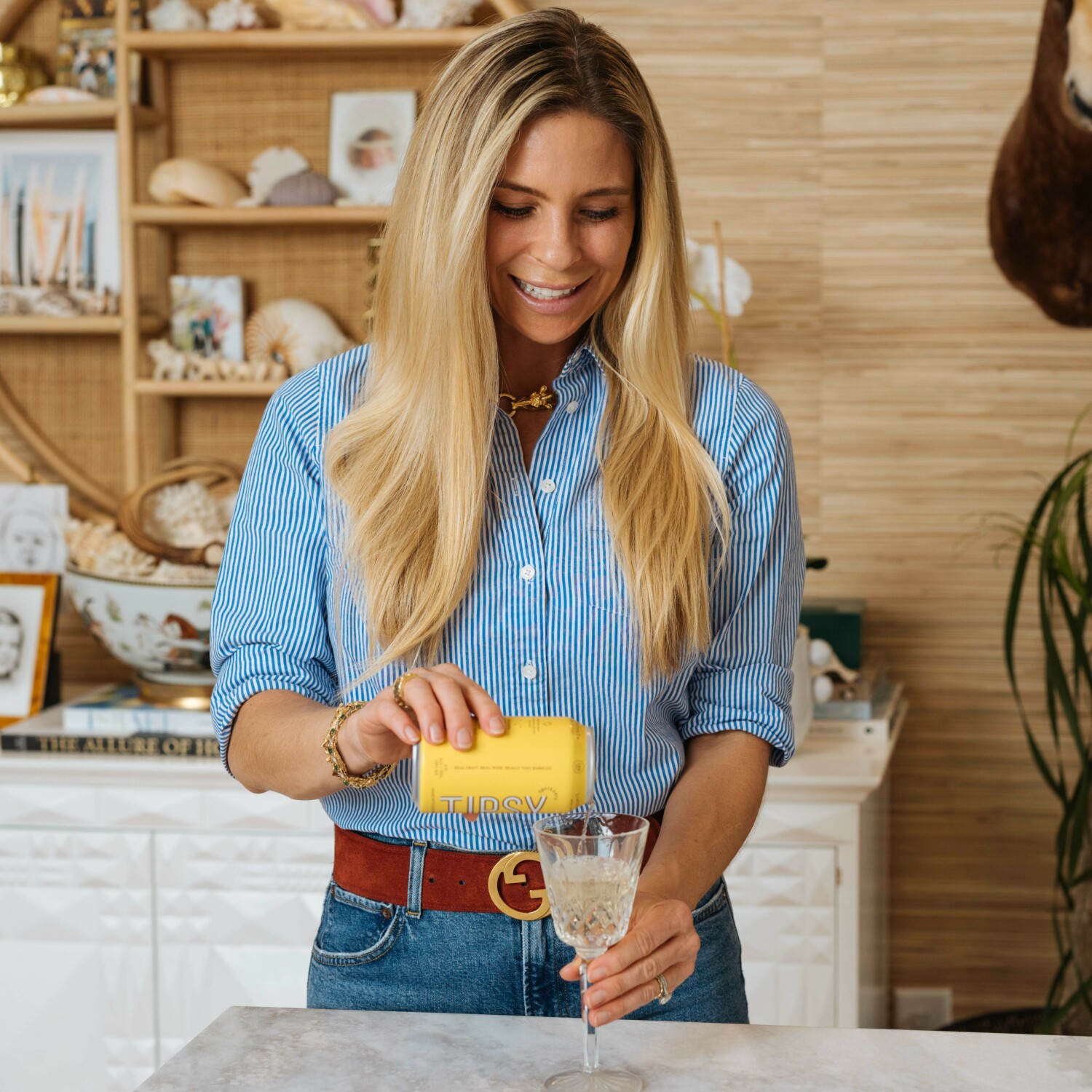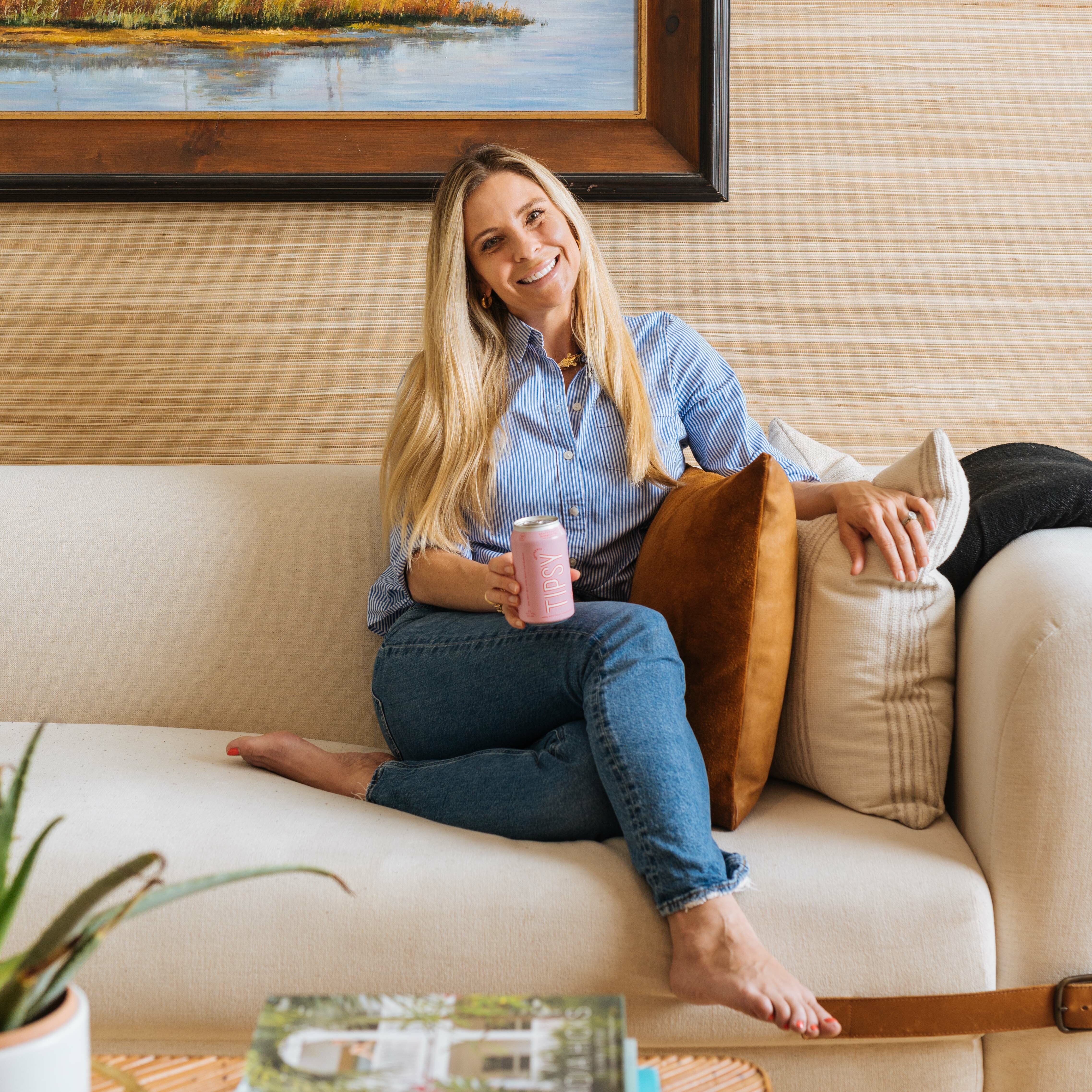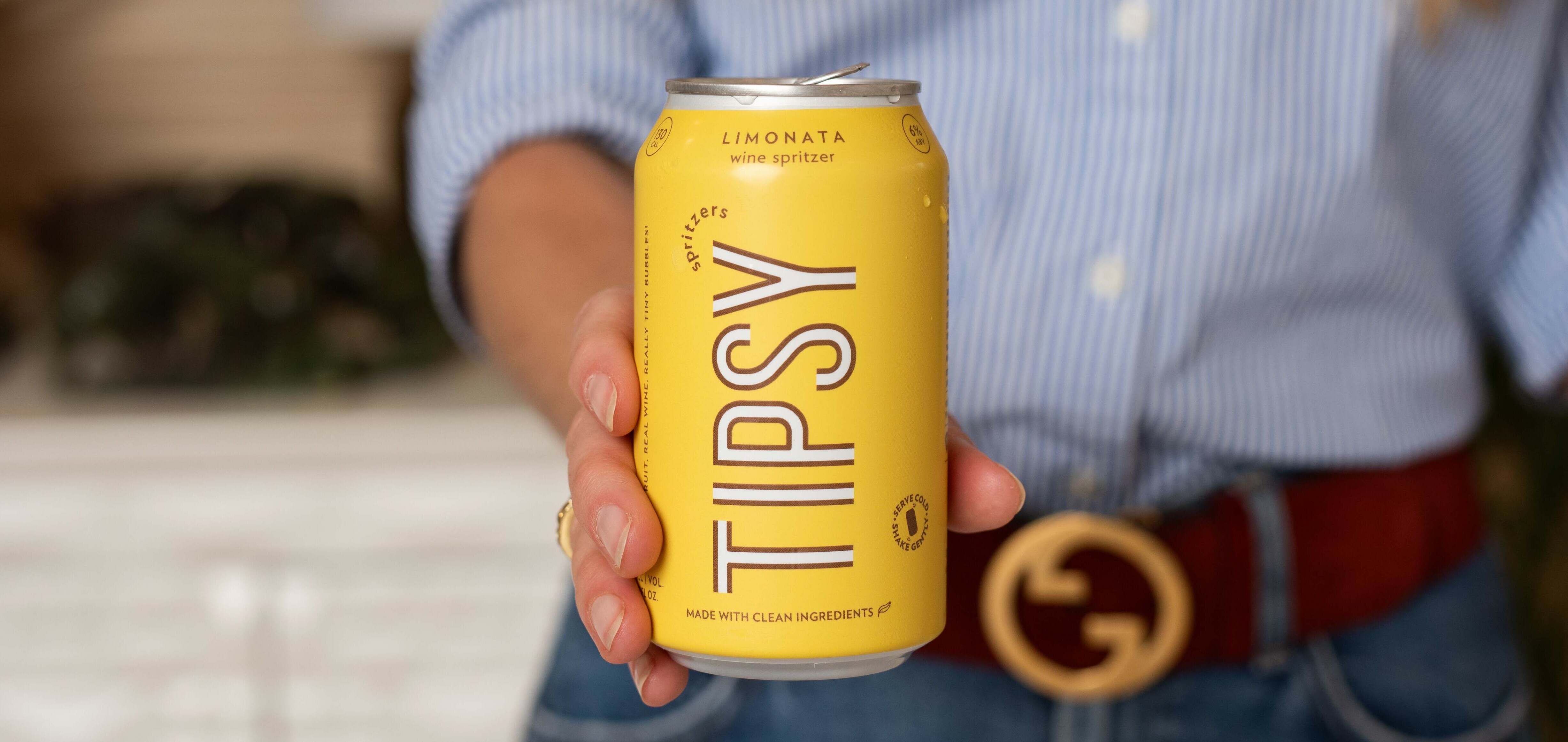Tell us about your entrepreneurial journey. How did you get into this chaotic world?
Honestly, I kind of stumbled into this business.
My background is in medical device sales and then I went into healthcare software sales and loved the career. I loved carrying a bag. I'm a salesperson at heart. That's my favorite part of what I'm doing now and where I shine the most.
But I was just tired of the corporate grind, the travel, the quotas, not feeling completely fulfilled. There were a lot of good things and there's a lot I've learned along the way. But I knew at the end of the day, I was building up someone else's business and I really wanted to make something of my own.
In 2017, during my maternity leave, I actually developed Charleston's first non-toxic nail salon, built that from the ground up, having no experience in that industry, just experience getting my nails done and getting treatments and knowing what I like. And I ended up franchising that. We were on a really great path and then COVID hit. And COVID was tough on everyone―especially salons. So many businesses did not survive. The rules and regulations were overreaching with salons. And salons were one of the last businesses to reopen.
It was just a really tough time for my employees as well. I'm a mom and I had a lot of moms that were employees and juggling children, childcare, school being constantly canceled and rescheduled. It was tough times for everyone.
But I was very fortunate. I had been approached by the founders of Clean Juice, Kat and Landon Eccles. They're people I admire. I love their ethos and what they're about. They're based out of Charlotte, North Carolina and have approximately 200 locations. This was a business model that really complimented what they were doing with organic juices. They’re master franchisers, and
they loved that I already had the template. My margins looked good, and I hit my ROI with that business in 14 months. It was a well-built, well-oiled machine at that point, and I exited that in 2020.
During that time, or really even before that exit and acquisition, I had thought of the idea for Tipsy. We were on the boat with friends, and my husband was like, oh, my gosh, y'all are making a mess. You're spilling stuff everywhere. Go find something in a can. But at that time, nothing really existed. And there's still very few competitors that are specifically in my space. So, I kind of sat on the idea.
Then, with COVID, we were on the boat even more and drinking more, as I think everyone was. A friend and I decided we really needed to pursue this. So, we launched in late 2021 with much success. We started out with two relatively small distributors. And there were some challenges with finding the right distributors and manufacturers, but we've grown.
I ended up buying out my partner in 2022. But we've been on the right trajectory. We're opening in three new states this year and we've done several rounds of seed investment. I'm really excited for what's to come and I think 2024 is going to be our banner year.
Is Tipsy in the clean beverage category?
Absolutely. Think of it as an Italian wine spritzer in a can. I knew that I wanted something canned for adventure, and convenience, whether you're going to tailgate for a football game, or going to the pool and you don't want to deal with glass or rules about glass breakage, being on a boat, or having a picnic.
There are a lot of beverages out there now called RTDs in the ready-to-drink space. But very few of them are clean. Most have a lot of preservatives and added chemicals that don't have to be disclosed on the label, which I find problematic. And then just tons of sugar or fake sweeteners, which are almost worse than sugar.
So, you started a salon franchise and then you sold it. Tell us about that process. What were the challenges and biggest lessons learned during that? And would you do anything differently?
I've learned a lot of tough lessons as an entrepreneur. A lot of expensive lessons. My husband always says I’m getting the most expensive MBA out there. And I've become a very expensive wife with all of my endeavors. But, you know, they've always ended up paying off with the acquisition.
The actual acquisition went pretty smoothly because the people acquiring me were fair and reasonable. They knew exactly what they wanted, and I was very clear and transparent about what I wanted. So there really was not a lot of back and forth.
I like to operate with integrity and honesty. And the biggest challenge during that time was trying to get people to come back to work and figure out schedules, and also deal with the customers and some of their fears. It was just a really chaotic time. When we reopened, though, that June, we actually had one of our best months ever with a record number of sales.
It was also hard to navigate because there were so many opinions about how things were being handled. Looking back, there are things that I certainly could have done differently as far as how I communicated. But it was just a really stressful time financially and emotionally. At that time, I had two children under the age of three and we had just franchised, and I knew that we were going to be ramping up with Tipsy.
We also flip houses, and we were building a house, a custom build. We'd flip and move every two years. My friends always joke that I thrive on chaos. But the hardest part was fairly and transparently communicating with my team and ensuring that the transition was smooth for them.
Did you get investors – VCs or angel investors to start your business?
I started that business with about $150K of my own money. We were able to get the return on that investment in 14 months, which was pretty incredible. My biggest issue was always being understaffed. There were never enough employees to service the number of customers that we could have had in the building at any given time. So, it was a pretty safe business model.
I tell people that it's better to have a small space that you can manage and hit your numbers and get profitable quickly. You can always sublease that space to someone else if you grow out of it. That's where I see so many brick-and-mortar businesses struggle, especially if you're not experienced.
What we're seeing in Charleston, love it or hate it, there are a lot of restaurant groups that are VC- and PE-funded. And they have a whole operations team, a finance team, and financial backing. And of course, they can open up a 5,000-6,000 square foot restaurant and decorate it to the nines. And that's hard for someone local and self-funded.

Tell us about the process of developing your product.
You need a formulator because they're food scientists and they understand shelf studies, ingredients, and where to source, but that process takes time. Then there are samples being shipped back and forth or you're flying there and trying the samples. Also, with what I'm doing, my resources and materials are more limited because we are using organic and clean, and we don't compromise on those standards. If you're making a malt-flavored beverage, you can go directly to almost any co-packer or brewery, and they can throw in natural flavors and charge nearly the same as what I charge for a premium wine cocktail.
But when you look at valuations, especially with alcohol, what an acquisition company is looking for is market penetration, going deep, and not casting your net too wide. If you are acquired by a Gallo or Constellation or someone even much smaller, they typically have the expertise and manufacturing facilities or wherewithal to improve your margins and to improve your distribution.
How is it with alcohol distribution?
It's hard. It used to be easier. But our biggest game changer and what really put us on the right trajectory was moving to RNDC. They’re in more than 40 states and are the second-largest wine distributor in the country.
But RNDC is going through its own reorgs and challenges. The small suppliers just really have to perform and remain on people's radar and to even get shelf space. We've had the
most success with a blended approach. Working hand in hand with our distributors, RNDC and Best Brands in South Carolina and Tennessee, and massaging those relationships we got into some of the regional plays, like Harris Teeter, and we’re working on Fresh Market. We are also planogrammed or on sets for Whole Foods, but we're still trying to execute with the right partners.
So, it's really like a seesaw. One day you're up and you think you've got it figured out, and then the next day you're down again. It's just a constant balancing act while moving the ball forward.
Two years ago, I would have thought RNDC would expand with us across their entire network, and right now, most of the big distributors are not doing that, especially with small or even midsize brands. So, we've had to get creative and say, OK, we got on the planogram for, for example, Natural Grocers. They're a great fit for us. They have 50-plus stores in Colorado. That's a win. So, we pursued a midsize distributor in Colorado that has a really good reputation.
Working with regional grocery stores is our primary focus. Obviously, we care about our independents and on-premises restaurants and bars too, but where we've seen the most success and the highest volume is where we're going to focus because that's how we're going to keep the lights on.
When you started Drink Tipsy, did you have the exit in mind?
Absolutely. So that's always been the plan. Especially with an RTD. When you're in cans, unless you
have your own manufacturing
facility or brewery, the margins are much thinner than they are with a premium spirit. So, the goal is always to scale― go deep, and get that volume and hypervolume in targeted markets like Nashville, Charleston, Atlanta, and Denver. We're being as strategic as we can, knowing our customer base and the markets where we're going to have the best chance for success. Our goal is to exit by 2028. If you had asked me two years ago, it probably would have been sooner. But it's just challenging right now.
We've been very fortunate to have five seed investors. Our first seed investor is also our chief administrative officer. He was an associate general counsel for PNC Bank. He's helped me get more streamlined, improving a lot of our contracts and agreements, getting more buttoned up with our co-packers and our vendors, and ensuring that we're not getting taken advantage of, which has absolutely happened too many times. Unfortunately, it's tough when you are new. The other four seed investors all came in after him.
Everyone is located in the Carolinas, and some are invested in other alcohol brands or CPG brands. So, they know about the industry and have the risk tolerance. And then some are in sales. Ironically, three of our five are attorneys. These are people that are friends and family, and they believe in me. They also know that I've got six figures invested in this business of my own money and success is the only option.
What's been the most rewarding part of this whole journey?
Honestly, what keeps me going is when I meet people that, when they find out that I'm the founder of Tipsy they're like, oh my gosh, that's my favorite product. This actually happened recently. We were meeting with a new CPA firm, and the lead CPA emailed me back and she was like, oh my gosh, you're not going to believe this. This is what me and all my mom friends drink at baseball games. I was so flattered, and I thought that was so special. So that's the thing that really keeps me going and lets me know that I'm on the right path.
When we’re at events, and people try our product, they can truly taste the difference. Once you taste something like Tipsy and then you compare it to other RTDs that have a lot of subpar ingredients, there is a big difference in taste, flavor profile, and aroma because we're using a high-quality, premium wine.
And instead of preservatives, we tunnel pasteurize our products. So, if you've ever made jam, jelly, or pickled things, you use heat to pasteurize and reduce any microbiological content. It’s the same thing with Tipsy. We're one of the very few brands that does that. It's just a safer and cleaner way to extend shelf life and preserve the product without chemicals.



If you could hit rewind on anything, what would be the one thing you would do differently?
I honestly would have worked with a consultant―somebody who had either already founded a brand or helped develop a brand from the ground up. I do have someone now that I can lean on. We hire him on a project basis. It’s not cheap, but if I had had someone like him in the beginning, the headaches and financial burden that I would have avoided would have been worth that investment.
Also, before working with a co-packer or manufacturer, I would ask for references and talk to those references to see how long they've been working with the co-packer and what their experience has been.
What is the best advice you've ever received?
Spend money slowly. When people raise capital and they've got that money flowing in, finally, they feel like, okay, I've got some cushion. I can start cutting checks to this consulting firm and pay for advertising and social media content. And before you know it, you're not even breaking even because you're outspending what you're making.
I hired a fractional COO/CFO recently as a blended role. He worked with a company as their CFO, was there from the beginning, and grew them to almost 200 million in
annual sales. If I had had him at the beginning, I'd be a lot further along. But he has really streamlined our financial operations.
Those are the things that are worth the investment early on and not spending the money too fast because it can go very quickly. I didn't hire a full-time employee until this year. After buying out my business partner, it was just me with a few part-time resources. So, I was very careful and intentional about where money was being spent.
If you had to choose one word that sums up your entrepreneurial founder journey, what word would you choose?
Perseverance. A lot of people would have given up by now. It is really hard. It can be hard on a marriage and on the family. There have been a lot of challenges, and this is not a cakewalk by any means.
People think it's sexy, glamorous, and fun, and you're just traveling to cool places and going to see your product made. Yes, those are the fun things. But they don't see me on my computer for three hours after I put my kids to bed banging out emails or going through QuickBooks. So, there's a lot of perseverance that's required. If it were easy, everyone would do it. I always remind myself of that.
Listen to our conversation with Katie on the Hello Chaos Podcast.
Connect with Katie on LinkedIn and follow Drink Tipsy on Instagram.
Article and cover photos by Tara Ashton Davis.